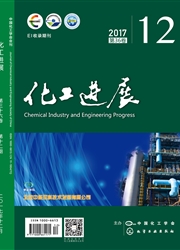

 中文摘要:
中文摘要:
随着船舶硫氧化物的排放形势日益严峻,海水脱硫技术因具有运行成本低、脱硫剂资源丰富、无固体废弃物等优点在船舶脱硫领域受到广泛关注。本文分析了脱硫塔类型、海水碱度、海水盐度、Ca~(2+)等金属阳离子、温度、液气比和SO_2初始浓度等因素对海水脱硫效率的影响,指出增加碱度是提高脱硫效率最直接有效的方式。综述了如何提高海水碱度、减少海水脱硫系统的占用面积和同时脱硫脱硝等研究热点,并针对船舶的移动性,分析了海水脱硫技术用于船舶仍存在的主要问题。提出在不影响脱硫设备可靠性的前提下,开发环保高效的添加剂将是海水碱度研究的重点,指出在脱硫塔内高效氧化SO_3~(2-)是减少海水脱硫系统占用面积的重要研究思路。未来应用在船舶上的海水脱硫技术将沿着高效型、经济型、环境友好型的方向发展。
 英文摘要:
英文摘要:
The situation of SO_x emission from ships is becoming increasingly serious. Seawater desulphurization technology is paid great attention due to its advantages,such as low operation cost,abundant resources of desulfurizer and non-solid waste. The effects of alkalinity and salinity of seawater,metal cations such as Ca~(2+),temperature,liquid-gas ratio and SO_2 initial concentration on desulfurization efficiency were analyzed. Improving alkalinity of seawater is proposed to be the most direct and efficient way to enhance desulfurization efficiency. Research hotspots,including how to increase alkalinity of seawater,how to decrease the size of desulphurization system and how to removal SOx and NOx simultaneously,were outlined. According to mobility of ship,problems existed in applying seawater desulfurization technology to ship were introduced. Without influence on reliability of desulfurization equipment,developing environmental and efficient additives will be a focus of study on improving alkalinity of seawater. How to oxidize SO_3~(2-) efficiently in desulfurization tower provides a vital research orientation in term of reduction on the size of desulfurization system. Seawater desulphurization technology applied to ships in the future will be developed in a more efficient,economic and environment-friendly way.
 同期刊论文项目
同期刊论文项目
 同项目期刊论文
同项目期刊论文
 期刊信息
期刊信息
